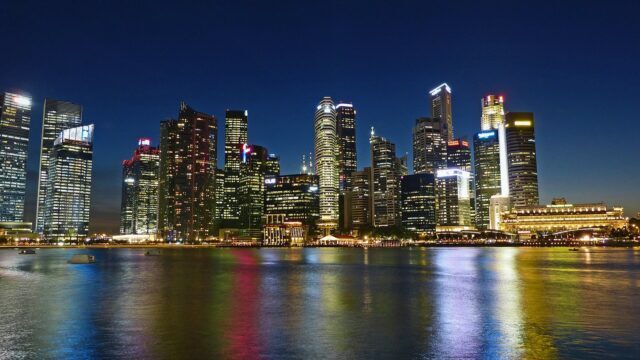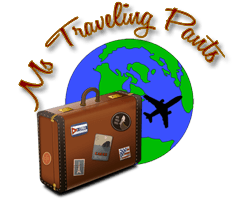Singapore is a vibrant cosmopolitan city in southeast Asia that has something for every visitor. Lying on the southern coast of Malaysia, Singapore is a small high-tech city with all the modern advancements and is easy to get around.
If you are planning your visit to Singapore for the first time, here is a guide list that will help you explore the city like a Singaporean.
Singapore’s Changi airport
When you travel to Singapore using Cathay Pacific or any other international airline, you will land in one of the world’s top-ranked airports, Singapore’s Changi airport. The downtown region from the airport is only 30minutes via a public transport system and its easy to see the main sights when you step foot in Singapore.
The airport has a scenic view that even the locals enjoy spending weekend time there taking photos, doing free movie screenings, checking out its botanic garden or also enjoying the swimming pool. Singapore’s airport is where you would like to be precisely in cases of a long layover.
Prepare yourself to spend extra bucks.
Singapore is among the most expensive cities worldwide, and if you plan on visiting, be prepared beforehand to spend more than its counterparts Southeast Asian neighbours. Most of the things cost double when you compare it with the surrounding regions, but it is slightly cheaper than most western areas.
The average cost of food there is SG$30 daily, but it depends on the spending habits of the traveller. A taxi ride is higher than the public transportation system with travellers confirming to have spent on average SG$11 per individual daily on local transportation in Singapore.
However, the extra cost is worth it as Singapore is a small city to navigate within a short time with modern infrastructure and conveniences right at your service. There are also a lot of free and cheap things to do if you are a budget-conscious visitor, but the cost of living can seem extremely high for you if you get there after staying in the surrounding cities.
Local public transport is cheap.
Singapore has an extensive modern public transport system that is well maintained to help you explore the city. It is the cheapest way and the easiest. Get yourself an EZ-link card to use in the subways and buses. Ensure you tap the reader at the beginning and end of the journey to deduct the fare from your account.
For ease of navigation, use a map app so that you know exactly how to get to a specific location. Taxis charge metered costs, and bike-sharing is also a popular and cheap way to get around the city.
Brace yourself for the weather.
Singapore has a tropical climate; this means that it is like summer all around the year. Temperatures range averagely at 25 to 34 degrees Celsius or 78-93 degrees Fahrenheit.
With the high humidity, it means that you will sweat a lot so brace yourself by packing light clothes, or you will find yourself all sweaty from heavy clothing throughout the day. You can plan your outdoor trips on cooler mornings to avoid that or in the city’s walks at night with the lights on.
Remember to carry an umbrella which is essential as the weather in Singapore can turn from blistering sun rays to downpours in seconds.
Hawker centres are food savers.
One way of saving money in Singapore is by skipping the fancy restaurants for the hawkers’ streets for a meal. You will find indigenous Singaporean cuisine and if you don’t believe it, join in the stall with the longest queue.
Hawker food is usually cheap and safe. The centres are typically far from the tourist centres but enduring the sweat to get there is generally worth it. Hygiene standards are always a concern, so check the coloured placards displayed at each stall from A (the best) to D (a risk).
Singaporean rules and regulations
Singapore has strict laws and regulations. Small actions like sticking a piece of gum on public property, spitting in public, tossing a cigarette butt in a drain, littering and other bad habits could earn you a fine if caught.
Most of the regulations are common-sense rules, and there is severe and harsh punishment such as caning and incarceration when it comes to crimes such as vandalism.
As a result, Singapore rates as one of the safest countries worldwide. Crime is generally low and regulated, and it is safe to be out at night on your own. Bribery and corruption are not acceptable. Make sure you use common sense as you would in any other cosmopolitan city, for instance, not leaving your things unattended.
Custom rules
Singapore is stringent on what alcoholic drinks you can bring in, and if you don’t follow the guidelines, you can face stiff fines. If you want to get around the expensive alcohol and tobacco taxes, study the Singaporean duty-free concessions.
With alcohol, you can only buy one litre each of beer, spirits or wine or two litres of beer plus one litre of wine and vice versa. E-tobacco products are banned, but there are no concessions on tobacco products. You can bring in one already opened tobacco packet, but everything else is on tax.
In addition to that, Singapore is stringent on drugs, and if caught with Marijuana in your system, you are eligible for a jail term.
Singapore has an expensive nightlife.

Partying and smoking in Singapore is expensive. The government charges huge taxes on alcohol, so getting or buying alcohol in any Singapore nightlife establishment is a costly affair.
However, you can save money on alcohol for a house party by buying the liquor from supermarkets but ensure you do so before 10.30 pm, that’s when shops stop selling liquor. You can also stick to the happy hour when there are usually many offers on alcohol.
Singapore prohibits smoking in most of public places such as restaurants and clubs with a fixed perimeter around public transport areas. So smoking in Singapore in public is hard but you can check or look for a yellow smoker’s box to see whether you can afford a legal puff.
Conclusion
Singapore is the ultimate travel destination for making more memories. Save more while in the city by using the public transport system, eating cheap, drinking the safe tap water, and taking a free walking tour with companies like Singapore Footprints.
**Post contributed by Jason Choi, a travel journalist based in Hong Kong**
